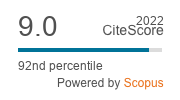The use of probiotics and synbiotics in the food industry or as food supplements for a balanced diet and improved gut homeostasis has been blooming for the past decade. As feedback from healthy consumers is rather enthusiastic, a lot of effort is currently directed in elucidating the mechanisms of interaction between beneficial microbes and barrier and immune function of the host. The use of probiotics or synbiotics for treating certain pathologies has also been examined, however, the outcome has not always been favourable. In most cases, the effect of the administered probiotic is evident when the bacteria are still alive at the time they reach the small and large intestine, suggesting that it is dependent on the metabolic activity of the bacteria. Indeed, in some occasions it has been shown that the culture supernatant of these bacteria mediates the immunomodulatory effect conferred to the host. Recent work on relevant probiotic strains has also led to the isolation and characterisation of certain probiotic-produced, soluble factors, here called postbiotics, which were sufficient to elicit the desired response. Here, we summarise these recent findings and propose the use of purified and well characterised postbiotic components as a safer alternative for clinical applications, especially in chronic inflammatory conditions like inflammatory bowel disease, where probiotics have not yet given encouraging results as far as induction of remission is concerned.
Research-Article
Postbiotics: what else?
K. Tsilingiri Related information
1 Department of Experimental Oncology, Istituto Europeo di Oncologia, via Adamello 16, 20139 Milan, Italy
, M. Rescigno Related information1 Department of Experimental Oncology, Istituto Europeo di Oncologia, via Adamello 16, 20139 Milan, Italy
Beneficial Microbes: 4
(1)- Pages: 101 - 107
Published Online: December 27, 2012
Abstract
Keywords: probiotics, postbiotics, inflammatory bowel disease
2022 Journal Impact Factor
5.4
source: Journal Impact Factor 2023™ from Clarivate™

Institutional Offers
For institutional orders, please contact [email protected].
-
A.A. Hibberd, C.C. Yde, M.L. Ziegler, A.H. Honoré, M.T. Saarinen, S. Lahtinen, B. Stahl, H.M. Jensen and L.K. Stenman
-
E.E. Blaak, E.E. Canfora, S. Theis, G. Frost, A.K. Groen, G. Mithieux, A. Nauta, K. Scott, B. Stahl, J. van Harsselaar, R. van Tol, E.E. Vaughan and K. Verbeke
-
K. Venema, J. Verhoeven, C. Beckman and D. Keller
-
E. Arvidsson Nordström, C. Teixeira, C. Montelius, B. Jeppsson and N. Larsson
-
J.E. Haarhuis, A. Kardinaal and G.A.M. Kortman
-
E.E. Blaak, E.E. Canfora, S. Theis, G. Frost, A.K. Groen, G. Mithieux, A. Nauta, K. Scott, B. Stahl, J. van Harsselaar, R. van Tol, E.E. Vaughan and K. Verbeke
-
K. Lippert, L. Kedenko, L. Antonielli, I. Kedenko, C. Gemeier, M. Leitner, A. Kautzky-Willer, B. Paulweber and E. Hackl
-
K. Tsilingiri and M. Rescigno
-
M. Ozen and E.C. Dinleyici
-
Y. Kobayashi, T. Kuhara, M. Oki and J.-Z. Xiao



